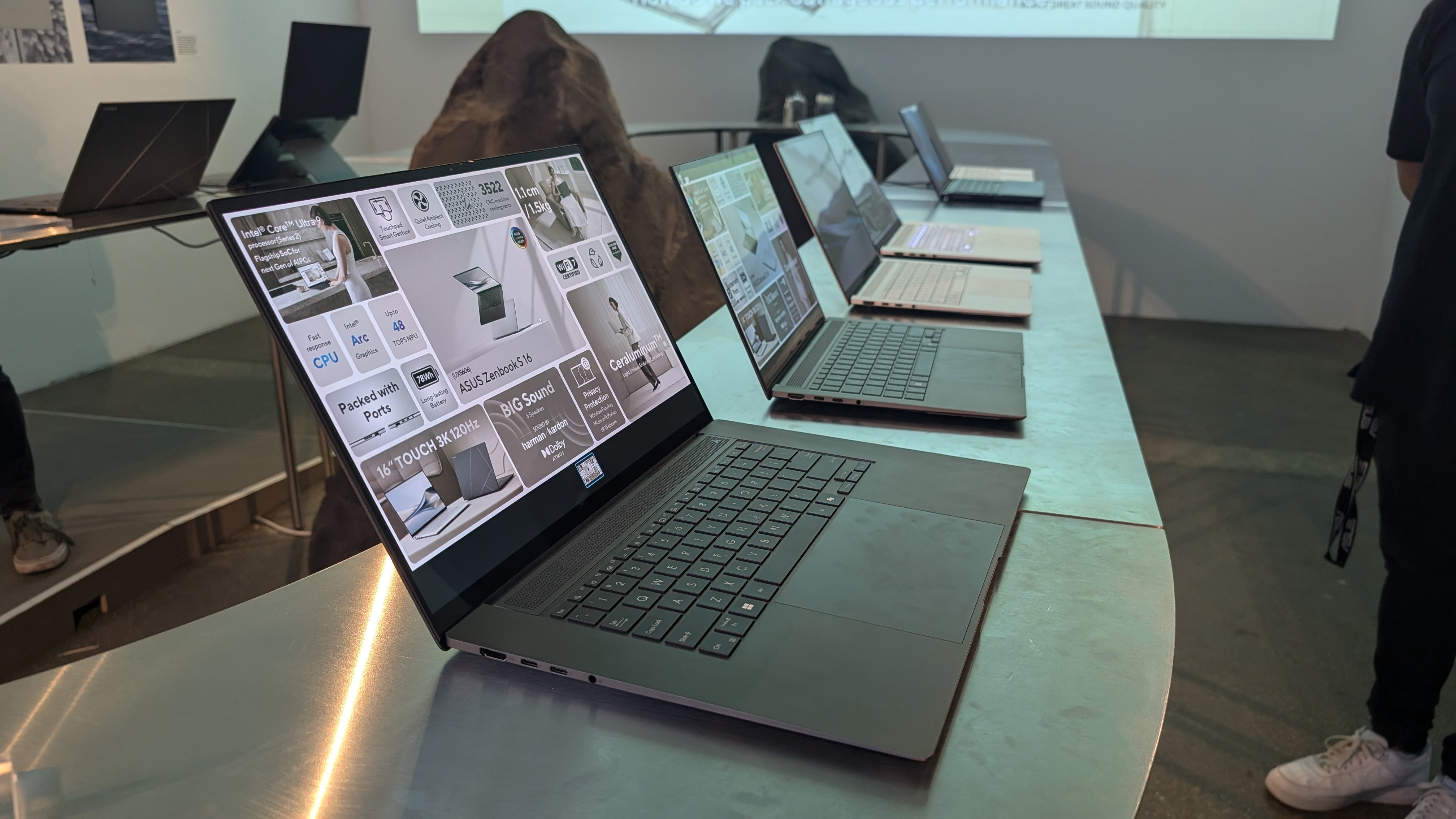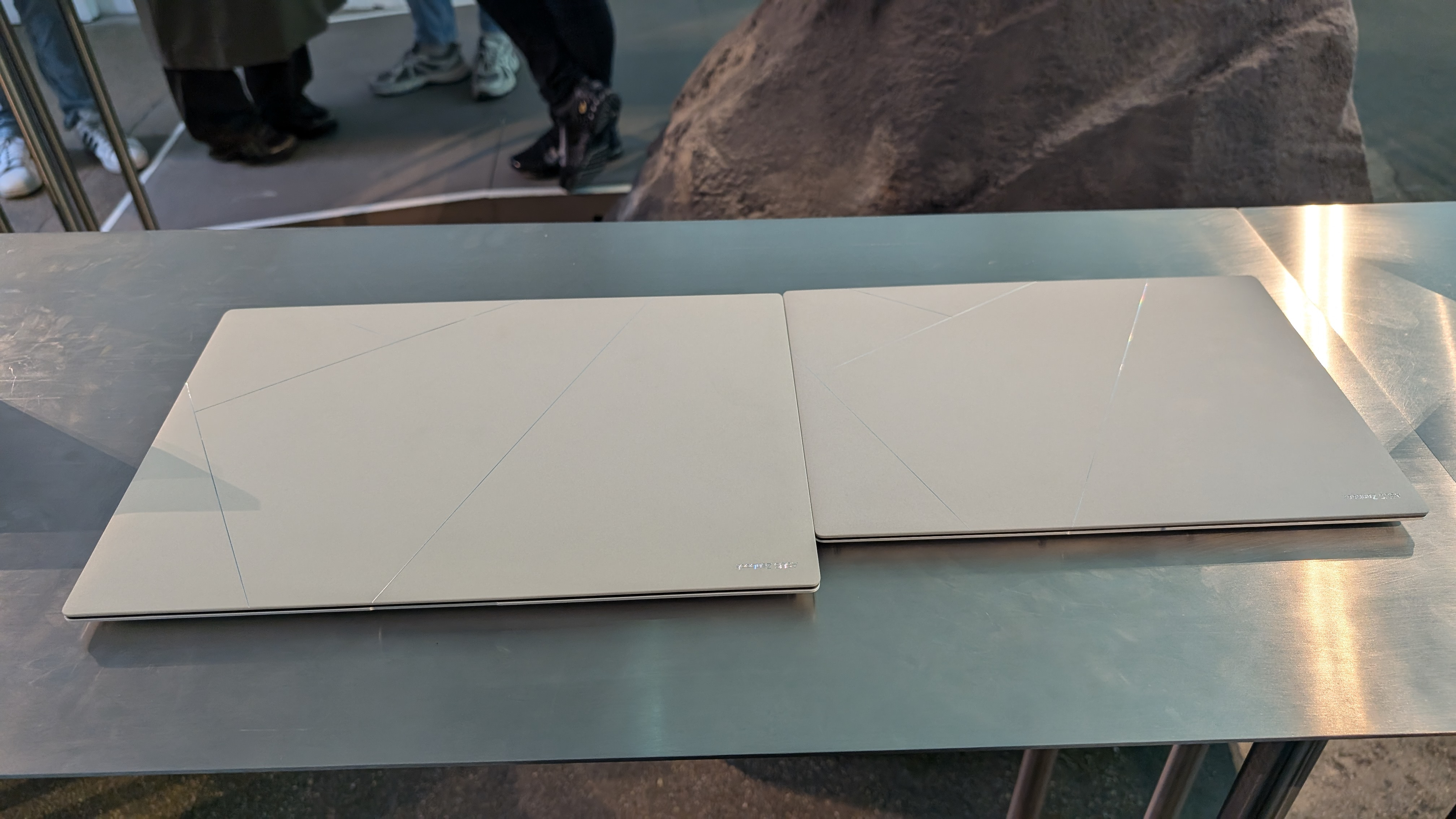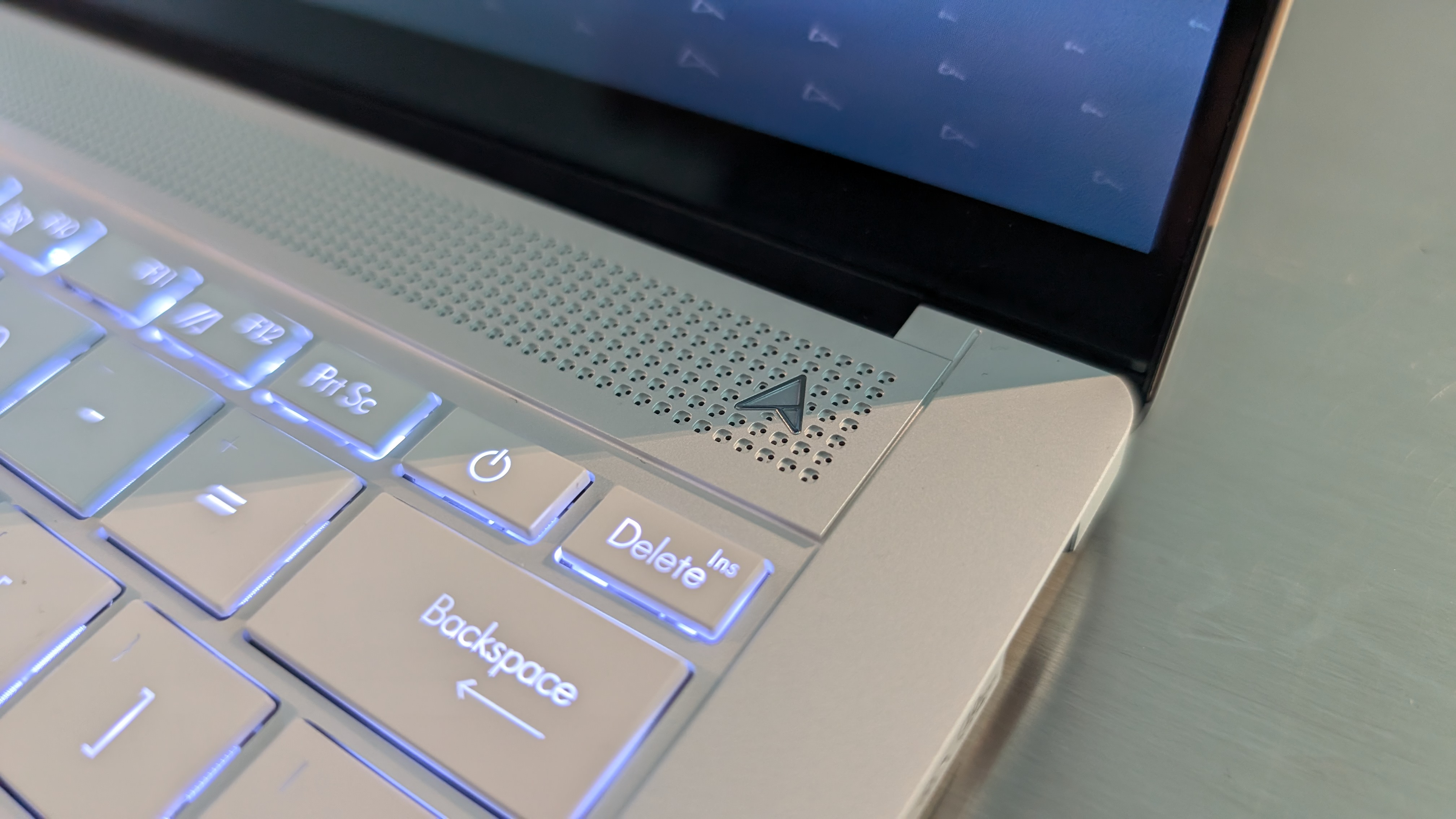‘Designed to last a lifetime’ - how Asus is using a revolutionary new material to build the laptops of the future
Just what the heck is ‘ceraluminum,’ and why is it so important?

It’s not every day that an art exhibit is secretly a laptop launch, but that’s exactly what just happened: at a swanky studio venue in London, I bore witness to Asus showcasing a fresh Zenbook laptop line built from an entirely new and unique material.
‘Ceraluminum’ took Asus four years to conceive and design in its 5,000-strong R&D department (no, they weren’t all just working on this), and while I was initially skeptical, I can now say that I’m a true believer. Described by Asus Chief of Design Mitch Yang as “a fusion of aluminum and ceramic, designed to integrate the best qualities of both materials,” the substance is created by bonding aluminum with a mystery ceramic ingredient, producing a strong plated material with a pottery-like matte surface.

Asus kept repeating that the new material is ‘inspired by nature,’ and while I’m not really sure what that means, I can attest to its impressive physical properties. It’s fantastically lightweight, enabling some incredibly thin and light new Zenbook models, and it repels fingerprints like nobody’s business.
Seriously, I couldn’t see the slightest blemish on these laptops, even after handling them for several minutes. It’s also stronger and more resilient than conventional milled aluminum; Asus had a ceraluminum disc spinning endlessly under a turntable needle to show exactly how scratch-resistant it is.
Can the ‘forever laptop’ become a reality?
Yang described the material as ‘everlasting,’ making it clear that the new Zenbooks made using ceraluminum should prove more enduring than the competition. It’s not hard to see why; these devices, especially the new Zenbook Duo on show, feel like the future of laptops.
It’s perhaps a little at odds with the general ethos of the tech industry as a whole, which I’m convinced is ‘new is always better.’ We’re constantly being encouraged to upgrade and toss aside our outdated (read: two years old) hardware in favor of something newer and more exciting.
Thankfully, Asus has prepared for this eventuality, too: even if you do choose to replace your ceraluminum Zenbook, the material is 100% recyclable. As Yang stated: “We are trying to encourage a more sustainable approach to tech ownership… we are trying to create a balance between sustainability and enjoyment.” When I spoke to him in a private interview after the panel discussion, he was visibly filled with almost childlike joy at the product he helped create, running his hand over the lid of his new laptop and admitting: “It’s just nice to touch.”
Get daily insight, inspiration and deals in your inbox
Sign up for breaking news, reviews, opinion, top tech deals, and more.

He’s not wrong, either; it’s a bit strange at first to pick up a one-kilogram laptop that feels like an ancient Roman tablet under your fingertips, but the matte surface is oddly pleasing. It’s not as cold as metal and feels far higher quality than plastic. It’s not painted or coated; it doesn’t need to be. Combined with the straight-lined inlaid silver patterning on the lids, there’s no denying that the new Zenbook line looks fantastic.
As for whether they’ll truly last forever, well, that’s sort of out of Asus’s hands. The components that power these laptops are what really determine their longevity. However, with powerful new Intel Lunar Lake and AMD Ryzen AI 300 chips (though notably no Snapdragon X Elite models) at the heart of these laptops, they should last for a good while yet - at least, until the next big CPU industry upheaval.
You might also like...

Christian is TechRadar’s UK-based Computing Editor. He came to us from Maximum PC magazine, where he fell in love with computer hardware and building PCs. He was a regular fixture amongst our freelance review team before making the jump to TechRadar, and can usually be found drooling over the latest high-end graphics card or gaming laptop before looking at his bank account balance and crying.
Christian is a keen campaigner for LGBTQ+ rights and the owner of a charming rescue dog named Lucy, having adopted her after he beat cancer in 2021. She keeps him fit and healthy through a combination of face-licking and long walks, and only occasionally barks at him to demand treats when he’s trying to work from home.